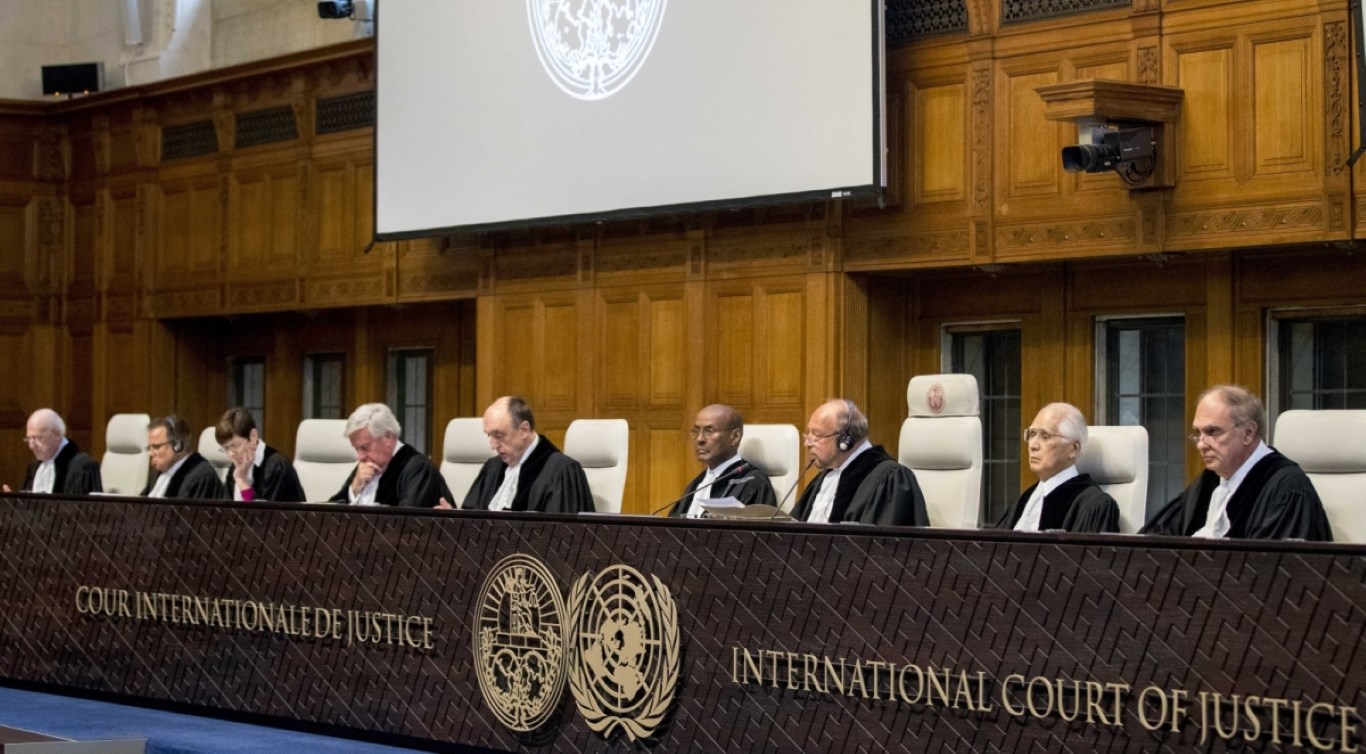Iran approaches the ICJ
August 27, 2018 | Expert Insights

Tehran will argue against the US in The Hague against the freshly re-imposed sanctions on Iran.
Background
The International Court of Justice (ICJ) is the principal judicial organ of the United Nations. It settles legal disputes between member states and gives advisory opinions to authorized UN organs and specialized agencies. It comprises a panel of 15 judges elected by the General Assembly and Security Council.
The court's workload covers a wide range of judicial activity. After the court ruled that the United States's covert war against Nicaragua was in violation of international law (Nicaragua v. United States), the United States withdrew from compulsory jurisdiction in 1986 to accept the court's jurisdiction only on a case-by-case basis
In 2015, Iran agreed to a long-term deal on its nuclear programme with the P5+1 group of world powers - the US, UK, France, China, Russia and Germany. This move came after years of tension over Iran's alleged efforts to develop a nuclear weapon. Under the accord, Iran agreed to limit its sensitive nuclear activities and allow international inspectors into the country, in return for the lifting of crippling economic sanctions.
As of August 2018, the United States does not accede to the compulsory jurisdiction of the ICJ.
Analysis
Teheran filed its case before the International Court of Justice in late July, calling on the Hague-based tribunal's judges to order the immediate lifting of sanctions, which it said would cause "irreparable prejudice".
The US had no right to reinstate such measures, Teheran added, as it demanded compensation for damages.
Iran maintained restoring the penalties lifted under the historic 2015 deal, aimed at curbing Teheran's nuclear ambitions, violated a decades-old treaty signed between the two nations in 1955.
Washington's lawyers will present their case on Tuesday, with experts believing they are to challenge the ICJ's jurisdiction.
The US’ main defence, in this case, is that the court does not have any jurisdiction to even accept the case.
Mr Trump described the 2015 deal between Iran and the five permanent members of the United Nations Security Council, as well as Germany, as a "horrible one-sided deal (that) failed to achieve the fundamental objective of blocking all paths to a Iranian nuclear bomb".
A raft of international companies - including France's Total, Peugeot and Renault, and Germany's Siemens and Daimler - have suspended operations in Iran in the wake of the move.
Both Air France and British Airways announced on Thursday that they were halting flights to Teheran next month, saying they were not commercially viable, but the British carrier added the decision was unrelated to the new tranche of sanctions.
In his executive order, Mr Trump argued that the sanctions would turn up the financial pressure on Teheran to come to a "comprehensive and lasting solution".
The United States has had a history of withdrawing from international courts and tribunals whenever they issued an unfavourable verdict.
The US has deployed this “sore-loser” strategy against the 1986 Nicaragua case verdict and the 2005 verdict in the case to make the US hear the plea of 51 Mexican nationals on death row in American prisons.
Earlier this month, Iran's supreme leader Ayatollah Ali Khamenei appeared to rule out any immediate prospect of talks, saying "there will be neither war, nor negotiations", with the US.
Assessment
Our assessment is that the US will argue a lack of jurisdiction and Iran’s case will be left in a limbo. We feel that in the post-cold war world, international adjudication has become a prime method of conflict resolution and the US should not avoid international courts out of fear of losing the case.








Comments